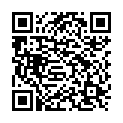|
|
|
| Module code: PdK-400.94 |
|
|
1SU (1 hour per week) |
|
2 |
| Semester: 4 |
| Mandatory course: no |
Language of instruction:
German |
Assessment:
B
[updated 05.11.2025]
|
PdK-400.94 (P322-0614) Childhood Education, Bachelor, ASPO 01.10.2019
, semester 4, optional course
|
15 class hours (= 11.25 clock hours) over a 15-week period.
The total student study time is 60 hours (equivalent to 2 ECTS credits).
There are therefore 48.75 hours available for class preparation and follow-up work and exam preparation.
|
Recommended prerequisites (modules):
None.
|
Recommended as prerequisite for:
|
Module coordinator:
N.N. |
Lecturer: N.N.
[updated 01.10.2025]
|
Learning outcomes:
After successfully completing this module, students will:
be able to define the term algorithmic competence and apply it to elementary education.
be able to analyze how algorithmic thinking is reflected in the daily processes and routines of daycare centers.
be able to recognize that algorithmic promotion often occurs implicitly, without professionals being aware of it.
be able to plan, conduct, and evaluate a small empirical study together with students with and without practical experience.
be able to reflect on the results with regard to educational practice and the professionalization of specialists.
be able to critically examine the opportunities and limitations of algorithm-based support in kindergarten.
[updated 05.11.2025]
|
Module content:
The seminar introduces the concept of algorithmic competence in the context of early childhood. The focus is on a theoretical examination of how children already develop algorithmic thinking in everyday life and how professionals contribute to this, often unconsciously. Students will examine educational plans, theoretical models, and research literature and derive criteria for recognizing algorithmic promotion in everyday educational practice.
A central component is the implementation of a small empirical study, which is planned, implemented, and evaluated by the students themselves. Students both with and without practical experience will be interviewed. The goal is to determine the extent to which algorithmic promotion already takes place implicitly and how aware the respondents are of it. The results of the study will be discussed in the seminar and reflected upon with regard to their consequences for educational practice.
The seminar combines theoretical principles with research-based learning and gives students the opportunity to critically and scientifically assess the importance of algorithmic support in kindergarten.
Note:
English-language literature will also be used.
[updated 05.11.2025]
|
Recommended or required reading:
Dogruel, L., Masur, P., & Joeckel, S. (2021). Development and Validation of an Algorithm Literacy Scale for Internet Users. Communication Methods and Measures, 16(2), 115133. https://doi.org/10.1080/19312458.2021.1968361
JFMK (2021) und KMK (2022). Gemeinsamer Rahmen der Länder für die frühe Bildung in Kindertageseinrichtungen. Available here: https://www.kmk.org/fileadmin/veroeffentlichungen_beschluesse/2004/2004_06_03-Fruehe-Bildung-Kindertageseinrichtungen.pdf
Su, Jiahong & Yang, Weipeng. (2023). Digital competence in early childhood education: A systematic review. Education and Information Technologies, 29, 1 49. https://doi.org/10.1007/s10639-023-11972-6
SWK (2022). Digitalisierung im Bildungssystem: Handlungsempfehlungen von der Kita bis zur Hochschule. Bonn: Gutachten der Ständigen Wissenschaftlichen Kommission der Kultusministerkonferenz (SWK). Available here: https://www.swk-bildung.org/content/uploads/2024/02/SWK-2022-Gutachten_Digitalisierung_Zusammenfassung.pdf
Additional literature will be announced at the beginning of the module.
[updated 05.11.2025]
|


